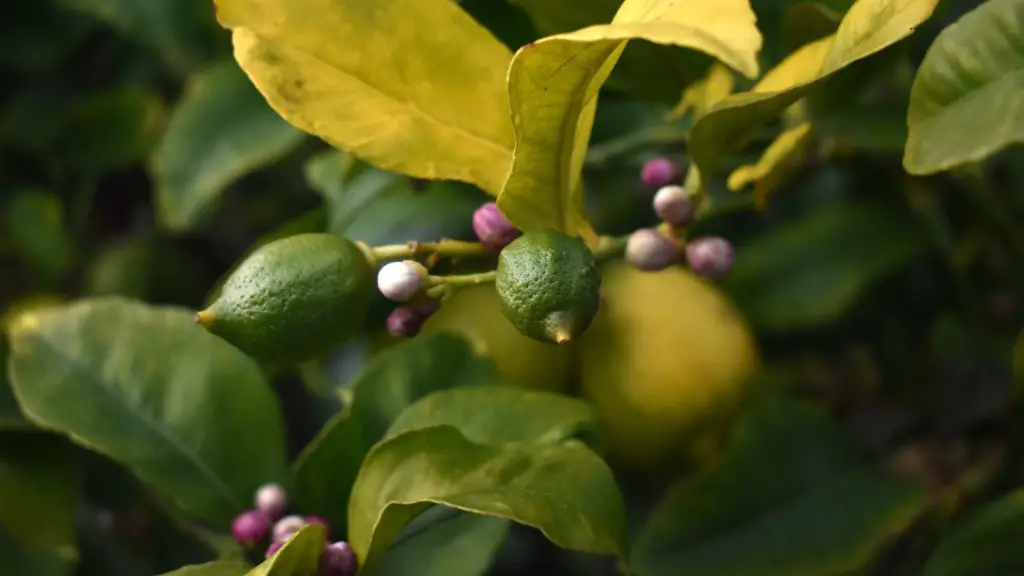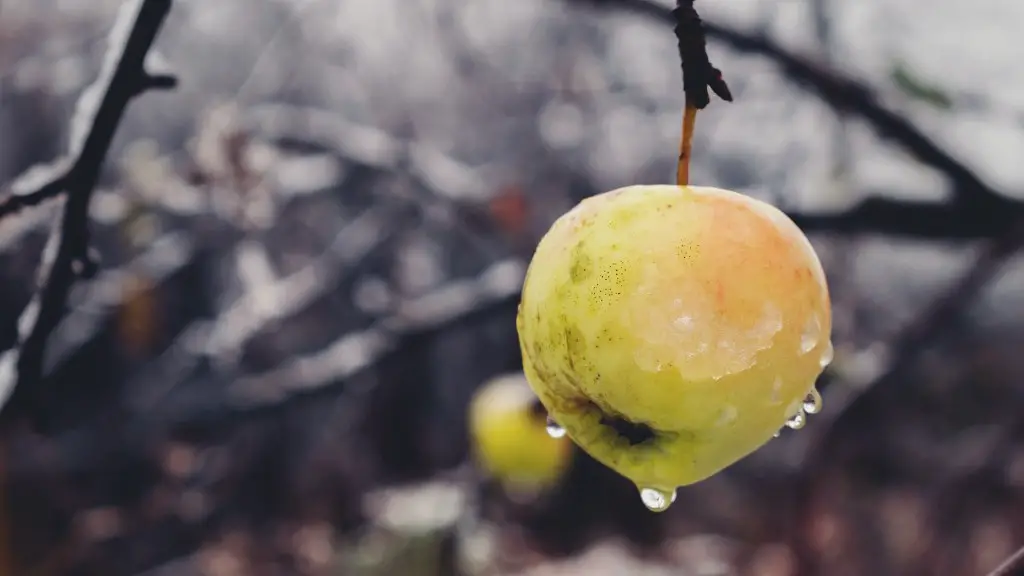Getting rid of bugs in lemon trees can be tricky. Lemon trees are prone to pests, such as mealybugs, scale insects, and aphids, that weaken and damage the tree by sucking its sap. To get rid of them, it is important to employ integrated pest management tactics such as pruning, monitoring, and creating proper environmental conditions. It is also beneficial to use a pesticide made specifically for lemon trees. Here are some steps to follow in order to get rid of bugs in your lemon tree.
Inspect the tree regularly and remove any visible pests with a cotton swab soaked in rubbing alcohol. If the infestation is slight, regular inspection and careful disposal of infested parts is likely to be enough. Prune the tree to get rid of congested, dead or damaged parts, as pests are likely to be hiding in those areas. Ensure good air circulation and avoid overcrowding by strategically thinning out or pruning the tree.
Check for the presence of ants. Ants can protect and harbour pests and there has to be specific ant control measures, so it is essential that you eliminate any ant colonies near your lemon tree. This can be done by using ant baits and ant traps. Good watering practices can help to maintain the tree in good health. In general, water it deeply once or twice a week and avoid overwatering as it can attract pests.
Clean the tree and dispose of all fallen fruit, leaves, and other debris. The areas near to the tree must be kept clean and free of debris to reduce the risk of pests. Make sure the soil around the tree is well draining and aerated to promote optimum health. If needed, fertilise your lemon tree with a balanced fertiliser with a ratio of 8-5-5 and use it at the recommended rate.
The use of insecticides may also be necessary to get rid of pests. Choose a pesticide formulated specifically for lemon trees and apply it directly to the infested area. Follow the instructions on how much to apply and when to apply it. As a preventive measure, it is possible to use a systemic insecticide as it is absorbed by the tree’s leaves and stays in the tree even when it is watered. This way, pests that come in contact with the tree will be killed.
Alternative Methods of Getting Rid of Bugs
Chemical treatments are not the only way to get rid of bugs in your lemon tree. There are other natural methods that can help to deter pests from infesting the tree, such as spraying a mixture of dish soap, garlic and water around the base of the tree. This mixture can be sprayed directly onto the leaves as well. The smell of garlic and soap will deter the pests and cause them to move on.
Companion plants, such as chamomile and marigold, planted near to the lemon tree can also naturally deter pests. They can be planted around the tree in order to act as a barrier. When watering, use a hose with a strong spray to knock pests off of the leaves.
Natural predators such as parasitic wasps, ladybugs, and lacewings will also help to keep pests away from your lemon tree. These can be purchased and released around the tree, where they will help to keep the pests under control. Neem oil is another effective natural pesticide that can be used to treat your lemon tree.
Diatomaceous earth is a powdered substance made up of small particles of silica which can be sprinkled around the base of the tree in order to prevent pests from accessing the trunk and roots. Diatomaceous earth kills organisms upon contact and is safe for the environment.
Preventative Measures
Maintaining the tree’s overall health is essential to prevent insect infestations. Keeping the tree pruned and well-ventilated, making sure the tree is watered correctly and shielding from wind, rain, or excess heat can all help to prevent pests from gaining access to the tree and damaging it.
Lemon tree pests can also be kept away by keeping up with regular pruning and cleaning around the tree. Remove any dead leaves or limbs and make sure the area around the tree is free of debris. Inspect the tree regularly to check for the presence of pests and take the necessary steps to get rid of them.
In order to reduce the amount of pesticide needed to control pests, use beneficial insects as a biological control. Predatory insects, such as lacewings and ladybugs, can be introduced to trap and feed on pests before they have a chance to spread.
Covering the tree with a citrus-specific netting or row covers is also advised in order to keep pests out of the tree and reduce the need for insecticides. Cover the tree for at least four months of the year. Citrus trees are also susceptible to various diseases, so it is essential to monitor temperatures and humidity around them.
Organic Control
Organic control options can be used to treat pests on lemon trees in order to avoid harm to the environment and local wildlife. Diatomaceous earth, neem oil, and horticultural oil can all be used as natural pesticides. Horticultural oil is made from petroleum derivatives and suffocates pests upon contact. Neem oil is a natural product derived from the neem tree and works as an insecticide and miticide.
Organic citrus treatments may also be used, such as citrus mineral oil sprays or insecticidal soaps which are both made from plant-based oils. Both of these treatments work by coating the bodies of insects and smothering them. There are other natural treatments, such as garlic sprays, vinegar sprays, and chili pepper sprays which can be used as a preventative measure.
In order to ensure the effectiveness of these treatments, it is essential to follow the instructions carefully. These treatments may need to be reapplied in order to be effective. Additionally, any infested parts of the tree should be pruned off and destroyed in order to prevent the pest from spreading.
Cultural Control
A comprehensive approach to pest control should include non-chemical measures as well as chemical treatments. Non-chemical pest management methods, such as monitoring and improving the environment around the tree, should be implemented first. This can be done by creating favourable conditions such as providing adequate air circulation, providing the tree the right amount of water and light, and keeping the garden free of debris.
Using companion plants, such as marigolds and chamomile, can also help to keep pests away. The scent of these plants is believed to repel the pests, so when the companion plants are planted near to the lemon tree, the pests will be less likely to congregate around the tree. Additionally, attracted beneficial insects, such as parasitic wasps and predatory beetles, can help to keep pest numbers in check.
Attracting birds to your garden is also beneficial as they will help to eliminate insect pests, and they also help to control insect populations overall. Using birdfeeders and birdhouses near to the tree will attract birds who, in turn, will help to keep the insects under control. Feeding birds high-quality birdseed will help to keep your garden and the lemon tree healthy.
Implementing cultural controls is the first step in getting rid of pests on a lemon tree. These measures will help to prevent pests from infesting the tree and reduce the need for chemical treatments. However, if chemical treatments are needed, it is important to use a pesticide that is specifically made for citrus trees.





